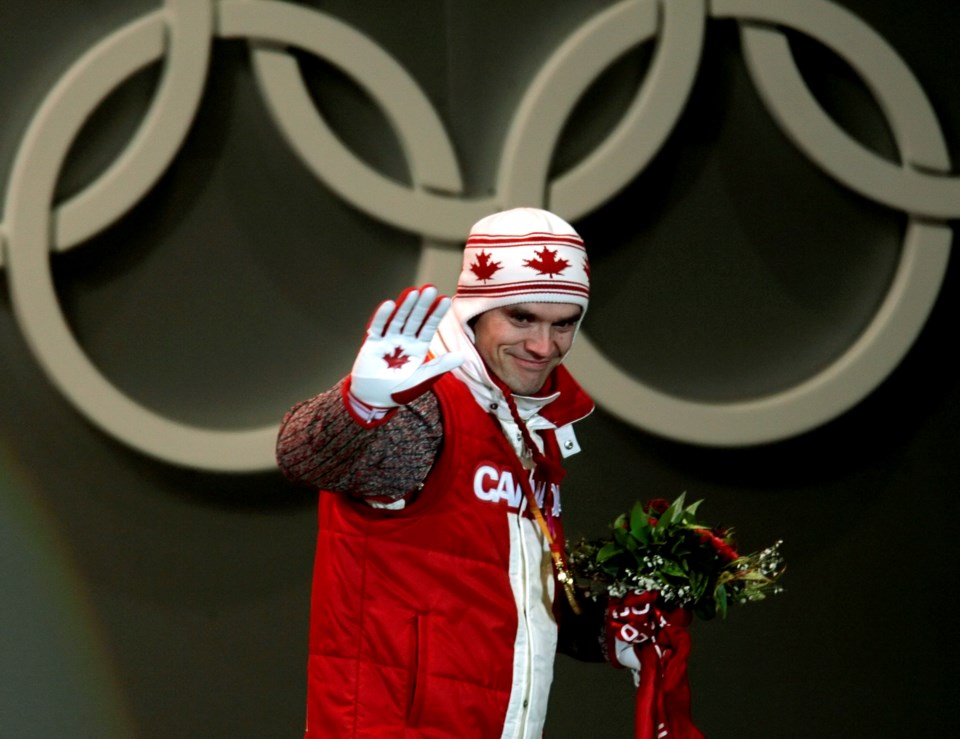BEIJING (AP) ŌĆö It took Duff Gibson many years to become an Olympic champion.
It took him more years to explain the methodology behind that win.
Gibson, who became CanadaŌĆÖs oldest individual Winter Olympics gold medalist when he captured the menŌĆÖs skeleton title at the 2006 Turin Games, has published a book called in which he details his mental approach and explains why he thinks that is the difference maker for elite athletes.
ŌĆ£ItŌĆÖs clich├® to say ŌĆśfollow your blissŌĆÖ or ŌĆśfollow your passion,ŌĆÖ but I started writing, an hour or two at a time, something I thought was worth writing down, 100 times over a few decades,ŌĆØ Gibson said. ŌĆ£And when I didnŌĆÖt have anything to do with high-performance sport anymore, I thought it was such a shame that I would have dedicated so many years of my life to being obsessed with sports and really interested in the mental aspects of it and not passed it along somehow.ŌĆØ
With that, the book he didnŌĆÖt even originally realize he was writing was born.
The book came out in September, just in time for the start of the Olympic sliding season. There have been three Olympic menŌĆÖs skeleton champions since Gibson ŌĆö Jon Montgomery of Canada won in 2010, Alexander Tretiakov of Russia won in 2014 and Yun Sungbin of South Korea prevailed in 2018. The at the Beijing Games is Christopher Grotheer of Germany.
None of those sliders has a story like GibsonŌĆÖs: He was coming into the Turin Games off three World Cup races where he averaged only a ninth-place finish. He was two months removed from the death of his father. He was 39; people that age arenŌĆÖt supposed to win Olympic gold medals. He won the gold and never got on a sled again after that night in Italy.
But Gibson ŌĆö whose real career is firefighting ŌĆö does believe he has plenty of parallels with those sliders.
ŌĆ£The bottom line is that certain mental characteristics are just too common among elite performers for it not to be related,ŌĆØ Gibson wrote. ŌĆ£This is why I chose Tao for a title, a Chinese word which roughly translates to ŌĆśpath' or ŌĆśway of being.' We have many different paths, but there seems to be a common way of being.ŌĆØ
His target audience is, frankly, broad. Olympians, he believes, could learn from what he writes. But Gibson also has been passionate about working with children as a coach and mentor, and he tried to write his story in a way that would allow parents and those who coach kids to easily apply what heŌĆÖs saying.
ŌĆ£ItŌĆÖs something to pass along,ŌĆØ Gibson said. ŌĆ£And I believe there are certain lessons that you have to learn yourself. But at least this information is all in one spot. It may make you think along certain lines and get you where you want to go a little bit quicker, maybe. ThatŌĆÖs what IŌĆÖm hoping for.ŌĆØ
___
More AP Olympics: https://apnews.com/hub/winter-olympics and https://twitter.com/AP_Sports
Tim Reynolds, The Associated Press


